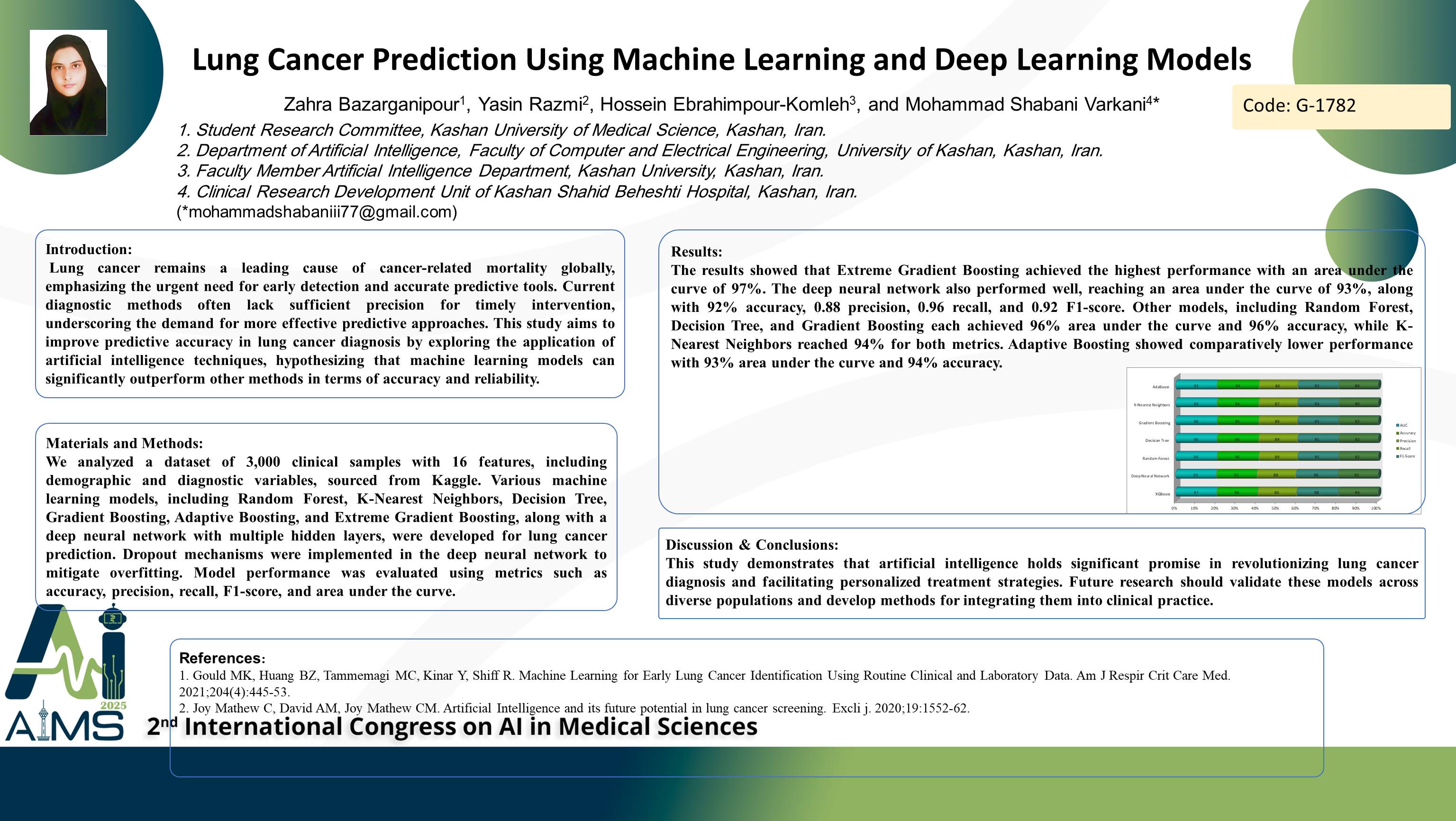پیشبینی سرطان ریه با استفاده از مدلهای یادگیری ماشین و یادگیری عمیق
کد: G-1782
نویسندگان: Zahra Bazarganipour ℗, Yasin Razmi, Hossein Ebrahimpour-Komleh, Mohammad Shabani Varkani *
زمان بندی: زمان بندی نشده!
برچسب: سیستم های تصمیم یار بالینی
دانلود: دانلود پوستر
خلاصه مقاله:
خلاصه مقاله
Background and aims: Lung cancer remains a leading cause of cancer-related mortality globally, emphasizing the urgent need for early detection and accurate predictive tools. Current diagnostic methods often lack sufficient precision for timely intervention, underscoring the demand for more effective predictive approaches. This study aims to improve predictive accuracy in lung cancer diagnosis by exploring the application of artificial intelligence techniques, hypothesizing that machine learning models can significantly outperform other methods in terms of accuracy and reliability. Method: We analyzed a dataset of 3,000 clinical samples with 16 features, including demographic and diagnostic variables, sourced from Kaggle. Various machine learning models, including Random Forest, K-Nearest Neighbors, Decision Tree, Gradient Boosting, Adaptive Boosting, and Extreme Gradient Boosting, along with a deep neural network with multiple hidden layers, were developed for lung cancer prediction. Dropout mechanisms were implemented in the deep neural network to mitigate overfitting. Model performance was evaluated using metrics such as accuracy, precision, recall, F1-score, and area under the curve. Results: The results showed that Extreme Gradient Boosting achieved the highest performance with an area under the curve of 97%. The deep neural network also performed well, reaching an area under the curve of 93%, along with 92% accuracy, 0.88 precision, 0.96 recall, and 0.92 F1-score. Other models, including Random Forest, Decision Tree, and Gradient Boosting each achieved 96% area under the curve and 96% accuracy, while K-Nearest Neighbors reached 94% for both metrics. Adaptive Boosting showed comparatively lower performance with 93% area under the curve and 94% accuracy. Conclusion: This study demonstrates that artificial intelligence holds significant promise in revolutionizing lung cancer diagnosis and facilitating personalized treatment strategies. Future research should validate these models across diverse populations and develop methods for integrating them into clinical practice.
کلمات کلیدی
ArtificialIntelligence, LungCancer, MachineLearning, ExtremeGradientBoosting, DeepNeuralNetwork
